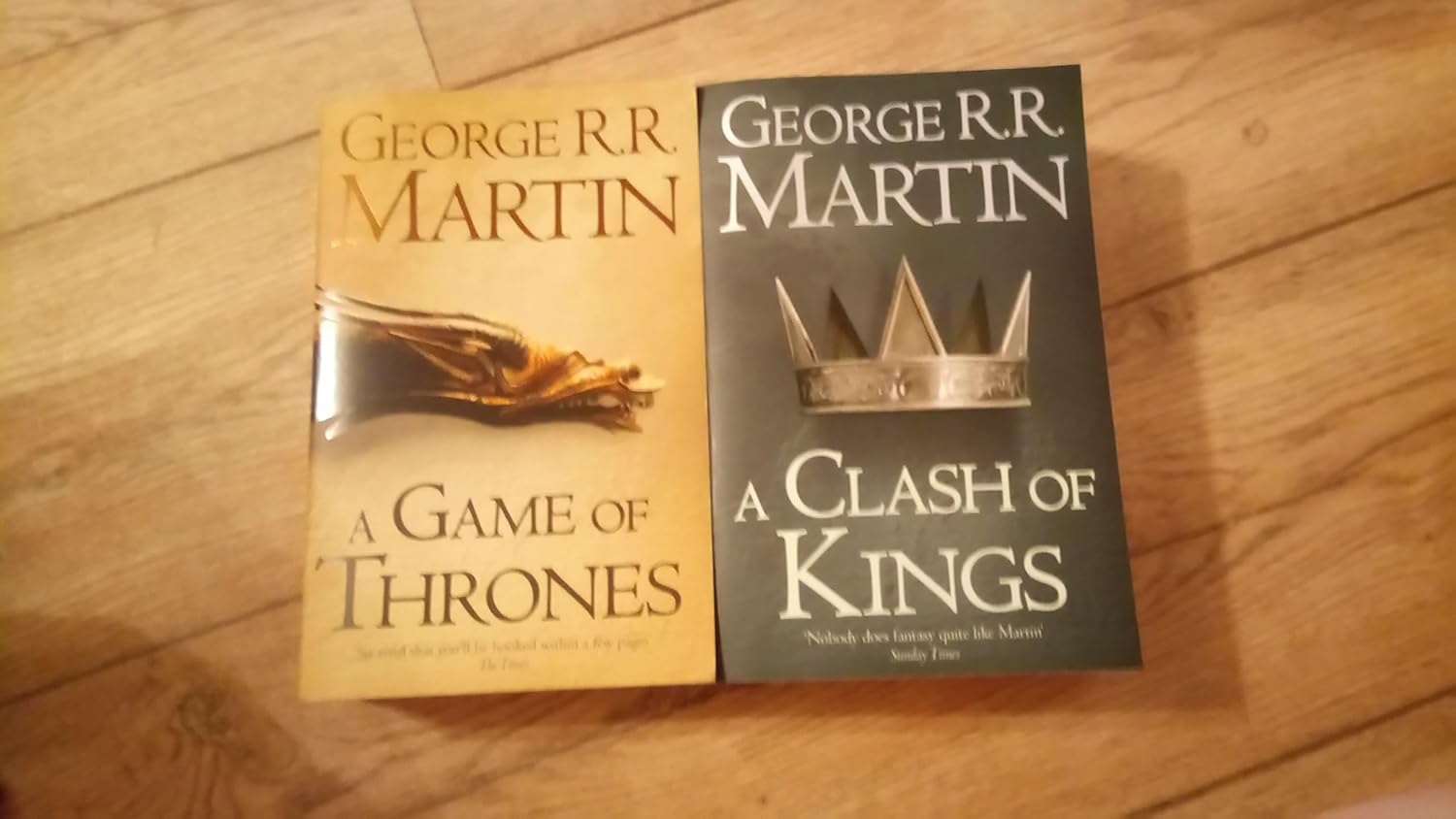"A Game of Thrones" was the first book in George R. R. Martin series called "A Song of Ice and Fire." It stood out as a epic masterpiece filled with political intrigue, backstabbing and the struggle to stay alive. This book much more than richly detailed. The setting was the Seven Kingdoms of Westeros. The story focused on the fierce battle for the Iron Throne. Many characters vied for power. Each had their own motives and ambitions. Betrayal lurked around every corner.Martin created a world that realistic at the same time. He showed how power could corrupt even noble intentions. The consequences were often dire for those involved in this game of thrones.In 1996, when it was published, readers immersed in a grim landscape where alliances shifted quickly and trust was scarce. Characters like Eddard Stark faced tough choices that shaped their fates.Also, there were moments of unexpected kindness amidst chaos which added depth to character relationships. These human elements made them relatable despite their flaws.More so, Martin work influenced many other writers in the genre after its release. Its impact on television followed soon after with adaptations bringing new audiences to his
Martin created a rich narrative in "A Game of Thrones." He used different perspectives. Characters came from noble families like the Starks and Lannisters. Exiled royals also played a part. The Night Watch stood guard on the frozen Wall. This storytelling style added multi-faceted. Readers saw events unfold from various angles.Unpredictability marked Martin’s plotlines. He avoided traditional fantasy tropes. Surprises awaited at every turn. Character fates often shocked readers, breaking expectations.The power struggles were intense and complex. Moral dilemmas challenged characters constantly. Loyalties shifted unexpectedly, creating tension throughout the story.In 1996, Martin published this groundbreaking work. It changed how fantasy narratives were told forever. The impact was significant and lasting in literature.Overall, Martin approach transformed the genre into something fresh and engaging for many fans worldwide.
Characters faced real consequences for their choices. No one was safe from death or downfall. The lack between good and evil blurred. This created morally ambiguous characters. Ned Stark stood honorable yet flawed. Cersei Lannister was cunning and ruthless. These complex personalities pushed the story ahead. Readers were left guessing who would succeed and who would perish.The world-building in A Game of Thrones astounding many. Martin paints a detailed picture of Westeros. The North felt cold and foreboding. King’s Landing shone with opulent and courts. Each region had its own flavor, making the setting rich.Also, character decisions mattered greatly in this tale. actions led to unexpected twists that kept readers engaged. Betrayals betrayals, leading to shocking turns of events.Further, the depth of characters added layers to the narrative. They were not just heroes or villains but people with desires and fears.More so, this complexity made readers think about morality in new ways.In , A Game of Thrones offered a unique blend of character-driven stories set against an intricate backdrop. Its impact on fantasy literature remained significant long after its release in 1996.
The lore and history created a rich setting. It felt real and immersive. Descriptions brought harsh landscapes to life. Lavish castles appeared vivid. Stakes seemed tangible. Yet, some readers found the number of characters overwhelming. Subplots piled up quickly. Intricate politics added complexity. Relationships required careful attention. Pacing slowed during world-building sections.Nevertheless, for those who liked layered stories, this depth enhanced the novel richness. The experience was rewarding for attentive readers. Overall, it balanced detail with narrative drive well enough to engage many audiences.
A Game of Thrones exceptional in fantasy literature. It had richly drawn characters and an unpredictable plot. The world-building was vast and detailed. This book attracted not only fantasy lovers but also those who enjoyed intricate, character-driven stories filled with tension, drama, and moral complexity. The novel marked the start of a sweeping saga. It redefines the genre. A Game of Thrones became one of the most influential fantasy works of modern times. Its legacy was significant, influencing many writers after its release in 1996.The characters faced moral dilemmas that reflected moral dilemmas. Readers connected with their struggles, which connected to the narrative. The story twists on edge, making it hard to predict what would happen next.In summary, A Game of Thrones left a lasting legacy in literature. Its blend of character development and intricate plotting set new standards for future works in the fantasy realm.

